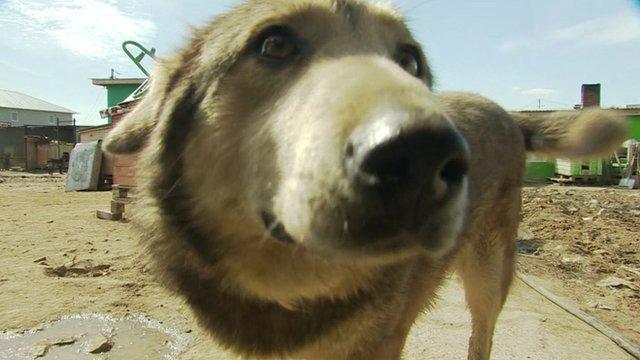Russian dog-lovers fight to save strays from cull in Siberia's Ulan-Ude
- Published
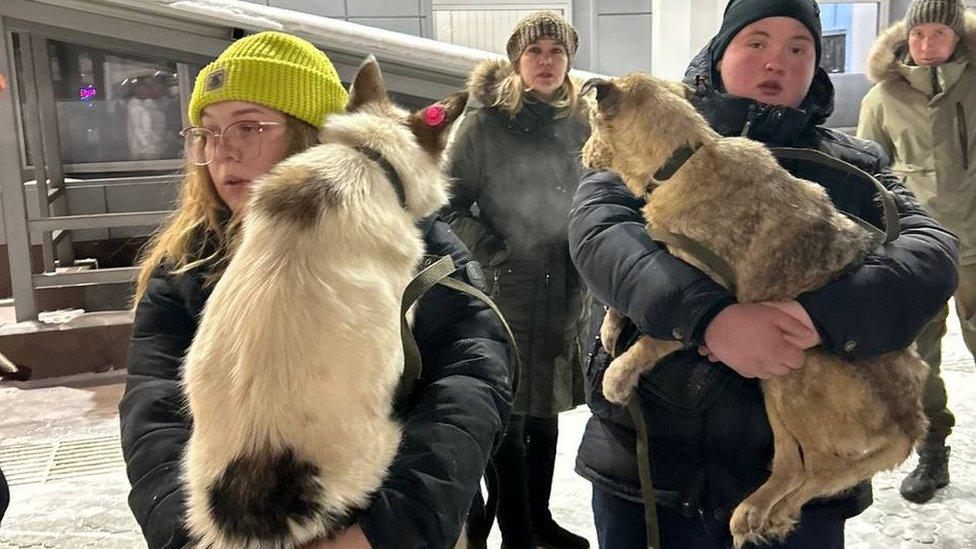
Animal welfare activists in Ulan-Ude have found new owners for hundreds of the strays
Dog-lovers are racing to save hundreds of stray dogs in Russia's Far East, because of a decision by authorities to start putting them down.
Eighteen have been culled so far in the Eastern Siberian town of UIan-Ude, close to the Mongolian border.
Six hundred dogs have already been sent by train to new homes or private shelters elsewhere in Russia.
"A lot of good-hearted people have responded," volunteer Stella Ovsoyan told BBC Russian.
They have boarded trains to Moscow, St Petersburg and Kazan in the west, and Khabarovsk and Vladivostok further east.
"They ask us to send a dog, any dog, a random one, no matter what it looks like. Their goal is simply to save a soul from death," Ms Ovsoyan said.
The temperature is -20C at Ulan-Ude's main station and a dozen people are waiting for the next train. Each of them has a dog on a leash or in their arms.
The dogs will be placed in a post carriage and sent to safety in the care of the train conductor.
Stray dogs are a big problem for Russia's republic of Buryatia and authorities there controversially made a recent decision to put them down.
Ulan-Ude has a population of almost half a million and hardly a month goes by without news of somebody being bitten by a stray dog.
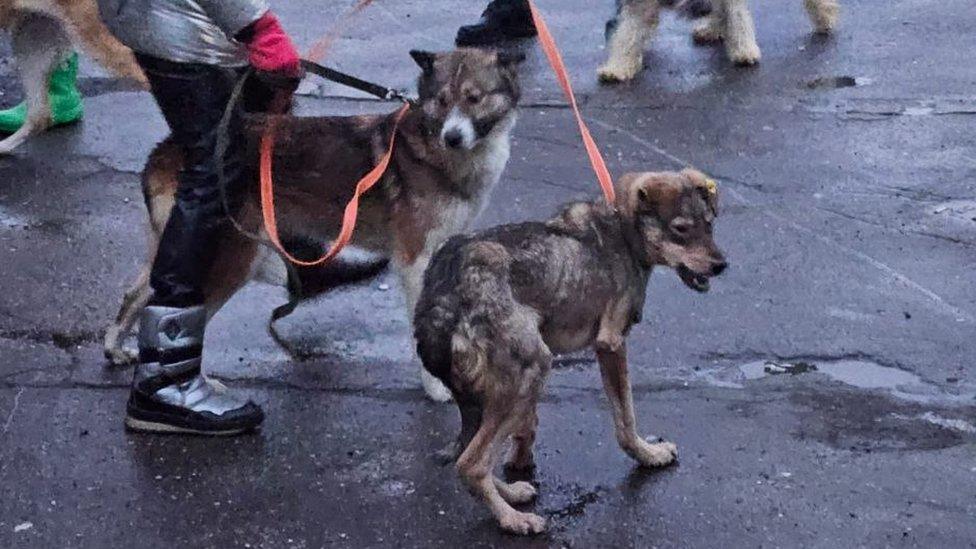
Some 2,000 stray dogs still need to be rescued, say animal rights activists
Culling strays was common practice in this region for years, until Russia's parliament passed a new law bringing in more humane policies, requiring the dogs to be caught, sterilised, vaccinated and set free.
When the law came into force in 2020 it did not go down well in Buryatia, where residents feared dogs would end up back on the streets, form packs and attack people.
Last year Russian MPs rolled back the law banning culls and allowed every region to decide for itself how to handle strays. In Buryatia, that meant returning to the old policy of culling them.
Eighteen stray dogs at a government shelter were put down by injection only last week. Ulan-Ude's authorities saw them as government property.
"These were not disabled dogs. They just needed a week or two to recover, get proper treatment and then they could be safely adopted," says Stella Ovsoyan.
Activists say the root of the problem here is neglect.
"People take a dog for one summer and then dump it. Or they take their dog's litter and throw the puppies out on the street," says Daria Zaytseva, head of an animal foundation in Buryatia.
Local laws do not hold people accountable for such behaviour, activists complain. Therefore, no matter however many dogs are put down, they believe there will still be more coming on to the streets.
Every dog ride to safety costs about 5,000 roubles (£44; $55) and although hundreds have been rescued, activists say there are still about 2,000 more to save.
The activists say without the kind of financial support they have had, they could never have afforded to save so many dogs.
Some who cannot take a dog into their home volunteer to pay for their trip.
But animal welfare volunteer Stella Ovsoyan warns that many still face an uncertain fate.
"I come to the shelter and I have to choose. I send this dog [to another region], but the other three remain here, and we don't know what will happen to them. It's very hard."
The only reason she stays is because of the chance of giving the dogs a new lease of life.
"Sometimes I just want to cry and give up. But then I get a message saying hello from the new owners of a dog we've already sent to live it's best life - and that's great."
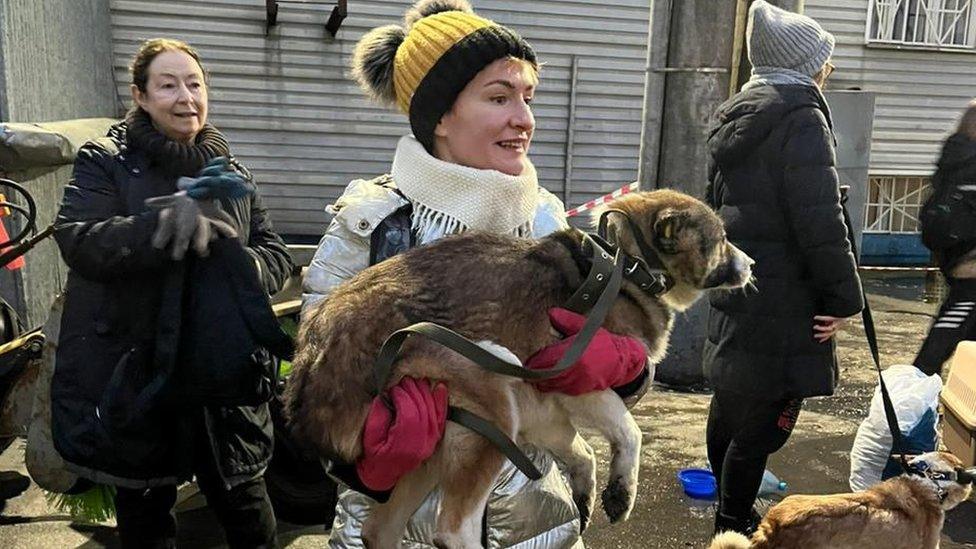
Some people who cannot take a dog in their home volunteer to pay for their trip to a safer area
- Published13 January 2024

- Published23 October 2023
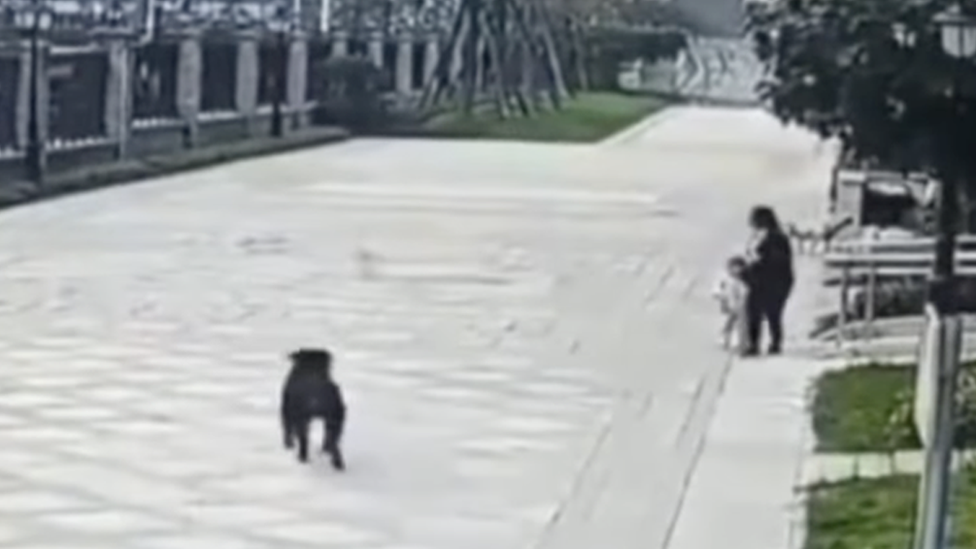
- Published19 August 2023
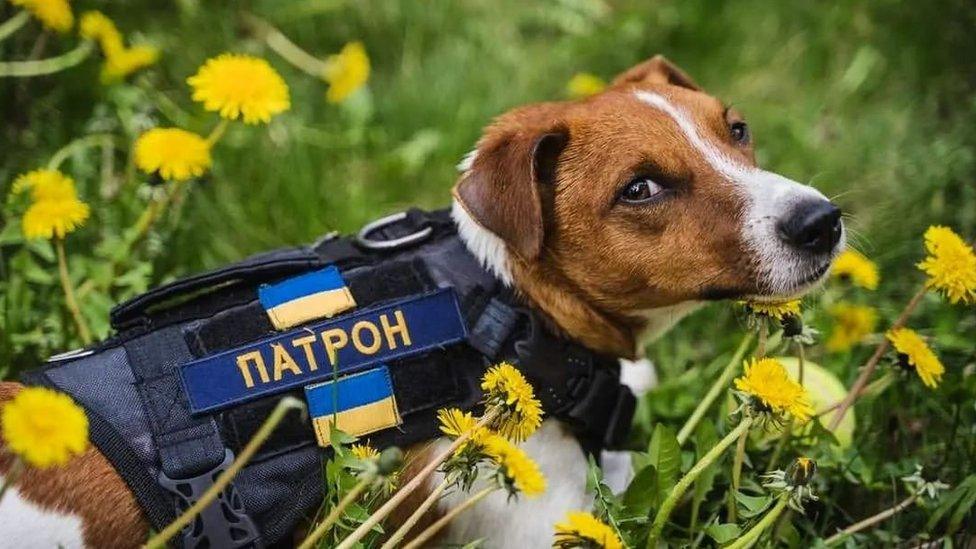
- Published28 September 2022
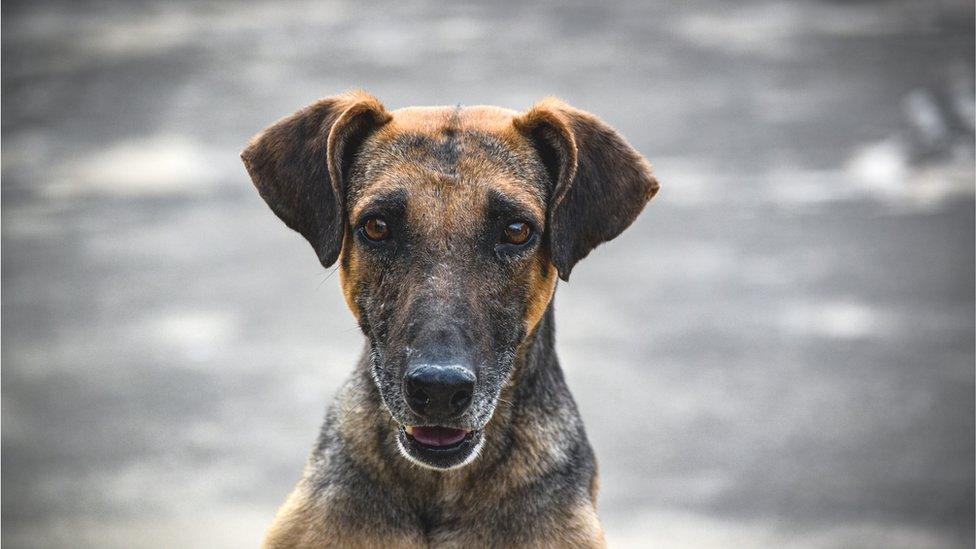
- Published13 May 2013
